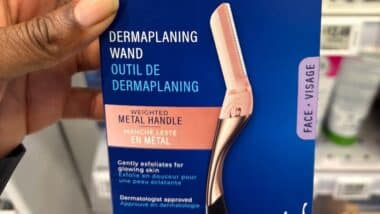
Whistleblowers are a first line of defense in the ongoing battle against fraud against U.S. taxpayers; the law not only offers remuneration for those who are willing to come forward and report fraud against the government, it also provides protection from retaliation by employers and others.
What Is Medicare Fraud?
According to a recent report from the Department of Justice, Medicare fraud accounts for nearly 87 percent of all money recovered as a result of whistleblower, or qui tam lawsuits brought by average citizens under the False Claims Act.
These fraudulent activities take numerous forms, including:
- false billing for services not covered
- illicit kickbacks (such as paying physicians to prescribe a certain product)
- deliberately providing false information
- phantom billing (i.e., for patients who have died or have discontinued treatment)
- upcoding (assigning an inaccurate billing code in order to increase reimbursement)
- unbundling (billing separately for procedures covered by a single code)
- billing for unnecessary procedures
- prescription scams (fake rebates, threatening loss of coverage, etc.)
2019 marked the tenth year that recoveries from Medicare fraud cases have totaled $2 billion or more.
It is worth noting that health care fraud is not unique to the U.S. Medicare program; a 2015 study from the U.K. found that almost 6.2 percent of the money spent on health care around the world is lost to fraud. Nor is Medicare the only federal health care program targeted by fraudsters; Medicaid and Tricare fraud is also rampant.
Who Are the Perpetrators?
Much of the fraud related to Medicare has been committed by pharmaceutical companies. However, while drug manufacturers are often at the top of the list, they are far from alone; other perpetrators named in fraud reporting include:
- HMOs
- hospices
- hospitals
- laboratories (including those at public universities)
- medical device manufacturers
- pharmacies
- individual physicians and private practices
Medicare Fraud Cases
One of the largest fraud cases settled last year involved Reckitt Benckiser Group, manufacturer of Suboxone, a medication used for the treatment of opioid addiction. The company’s subsidiary, Invidior, was accused of illegally marketing the product to physicians in attempts to increase the number of prescriptions.
Another major case involved Insys Therapeutics, which was accused of paying illegal kickbacks to physicians and nurse practitioners so as to get them to write more prescriptions for Subsys, a potent synthetic opioid. The company also faces charges of off-label marketing (advertising a medication for unapproved indications) and providing false information to insurers in order to obtain payments from federal health care programs.
Drug companies were not the only ones named; Encompass Health Corporation, an operator of inpatient rehabilitation facilities, has been accused of lying to Medicare in order to get higher reimbursements and providing treatments deemed to be unnecessary.
What’s In it For You
Those who bring health care fraud cases under the FCA can receive up to 25 percent of any recovery when the lawsuit is successful; this can amount to several million dollars in some cases.
In general, whistleblower and qui tam lawsuits are filed individually by each plaintiff and are not class actions. Whistleblowers can only join this investigation if they are reporting fraud against the government, meaning that the government must be the victim, and that the alleged fraud should be a substantial loss of money.
Do YOU have a legal claim? Fill out the form on this page now for a free, immediate, and confidential case evaluation. The attorneys who work with Top Class Actions will contact you if you qualify to let you know if an individual qui tam lawsuit or whistleblower class action lawsuit is best for you. Hurry — statutes of limitations may apply.
This article is not legal advice. It is presented
for informational purposes only.
ATTORNEY ADVERTISING
Top Class Actions is a Proud Member of the American Bar Association
LEGAL INFORMATION IS NOT LEGAL ADVICE
Top Class Actions Legal Statement
©2008 – 2026 Top Class Actions® LLC
Various Trademarks held by their respective owners
This website is not intended for viewing or usage by European Union citizens.
Get Help – It’s Free
Join a Free Whistleblower, Qui Tam Lawsuit Investigation
If you believe that you have witnessed fraud committed against the government, you may have a legal claim. Whistleblowers can only join this investigation if they are reporting fraud against the government, meaning that the government must be the victim, and that the alleged fraud should be a substantial loss of money.
See if you qualify to pursue compensation and join a whistleblower lawsuit investigation by submitting your information for a free case evaluation.
An attorney will contact you if you qualify to discuss the details of your potential case.
PLEASE NOTE: If you want to participate in this investigation, it is imperative that you reply to the law firm if they call or email you. Failing to do so may result in you not getting signed up as a client or getting you dropped as a client.
Oops! We could not locate your form.












